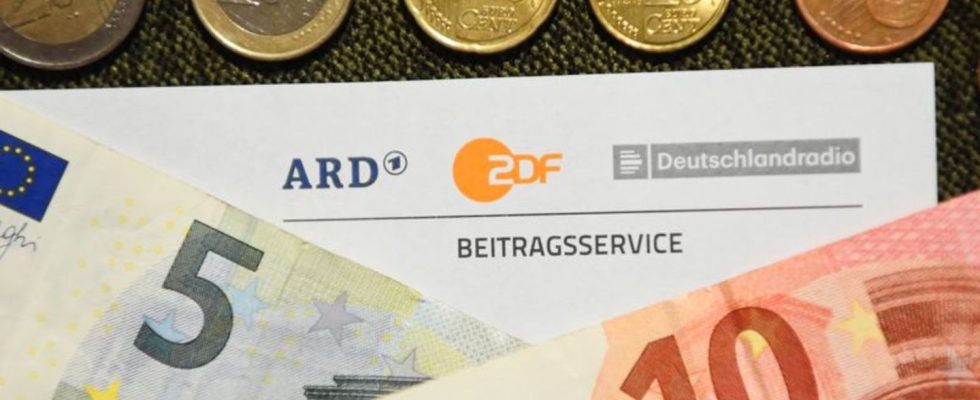media
Debate about the amount of the broadcasting fee before an important step
Experts give their recommendations for broadcasting fees for the next few years. photo
© Nicolas Armer/dpa
There is a dispute in the federal states about how high the broadcasting fee should be. Now independent experts are giving an important number. What does this mean for citizens?
From 18.36 euros up to 18.94 euros? In the federal states the amount of the Broadcasting fees for ARD, ZDF and Deutschlandradio were discussed. Tomorrow, Friday, independent experts will make their recommendations for the next few years. What does all this mean for citizens?
Will the contribution amount change immediately?
No. The independent experts from the Commission for Determining the Financial Requirements of Broadcasting Corporations (KEF) will make a recommendation on Friday as to how high the broadcasting fee should be from 2025. But you don’t decide. This is in the hands of the federal states, which determine the amount in a state treaty. The current contribution period runs until the end of 2024. The broadcasting contribution that households and companies pay is currently 18.36 euros per month.
What height will the KEF recommend?
It will be officially announced on Friday afternoon at the latest when the experts hand over their KEF report to the federal states in Berlin. In a preliminary draft, the experts came to 18.94 euros, which would be an increase of 58 cents.
The federal states commission public broadcasting through a state treaty – so they determine what it should do for the population or which programs it should offer. To achieve this, the houses must be financially equipped. The economic effort follows the order. The KEF regularly checks the financial plans of ARD, ZDF and Deutschlandradio and ensures thrift. When it comes to the amount of contributions, the federal states must closely follow the recommendations of the KEF experts. This sophisticated overall structure is also intended to secure the constitutionally protected freedom of broadcasting.
What happens in the next step?
The countries have to agree on a position; they can only decide the amount unanimously. And here we come to the problem: There are different views. Some prime ministers had already made it clear during the KEF’s calculation phase that they would not support any increase in the broadcasting fee. They don’t see enough support among the population for this. They also argue that the ARD, ZDF and Deutschlandradio stations need to operate more efficiently. And they cite the crisis at the ARD broadcaster RBB due to allegations of nepotism, which has cost trust.
However, there are other countries that, if in doubt, would probably support a possible increase. And voices emerged in the debate that warned against using the issue of broadcasting fees as an election campaign issue or using it to engage in populism.
Will the post change on January 1, 2025?
That is unclear. Several scenarios are conceivable. If the states do not make a decision this year, the amount will initially remain at the current level. It is possible that the broadcasters will later go to the Federal Constitutional Court. They had already done that last time years ago – when the state of Saxony-Anhalt resisted an increase of 86 cents from 17.50 euros to 18.36 euros and thus temporarily blocked the increase. The judges finally imposed 18.36 euros and put the state in its place.
What else is conceivable?
A kind of moratorium by the states could come into play because they are working in parallel on the reform of the broadcasting companies and the KEF is supposed to prepare a special report on possible savings from reform steps. The states could allow themselves a transitional period before clarifying the question of the amount of contributions. The states want to present reform proposals in the fall. It could also be that countries are putting pressure on the broadcasters not to sue in Karlsruhe. The broadcasters are holding back in the current debate and point out that it is KEF and the states’ turn.

